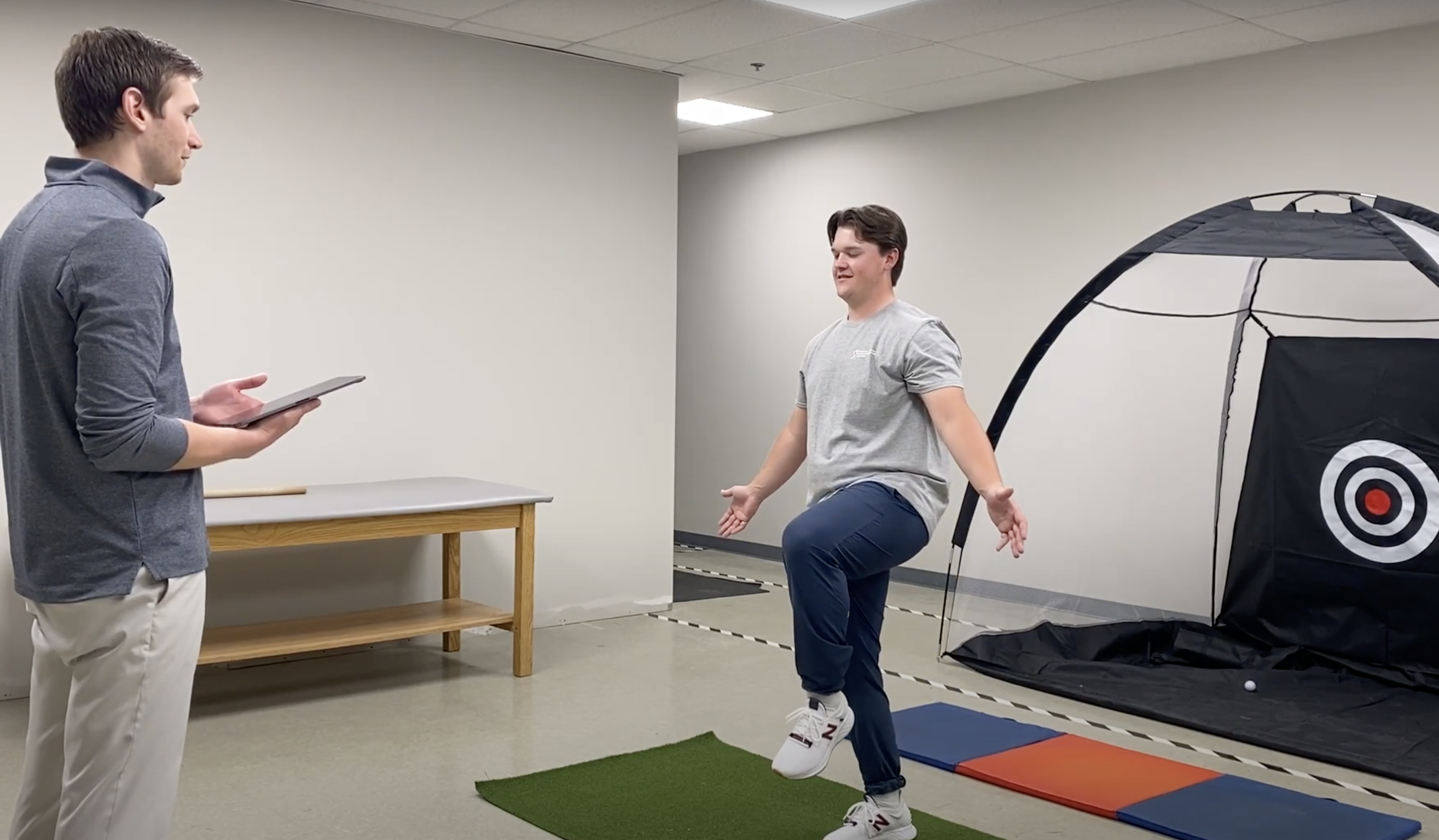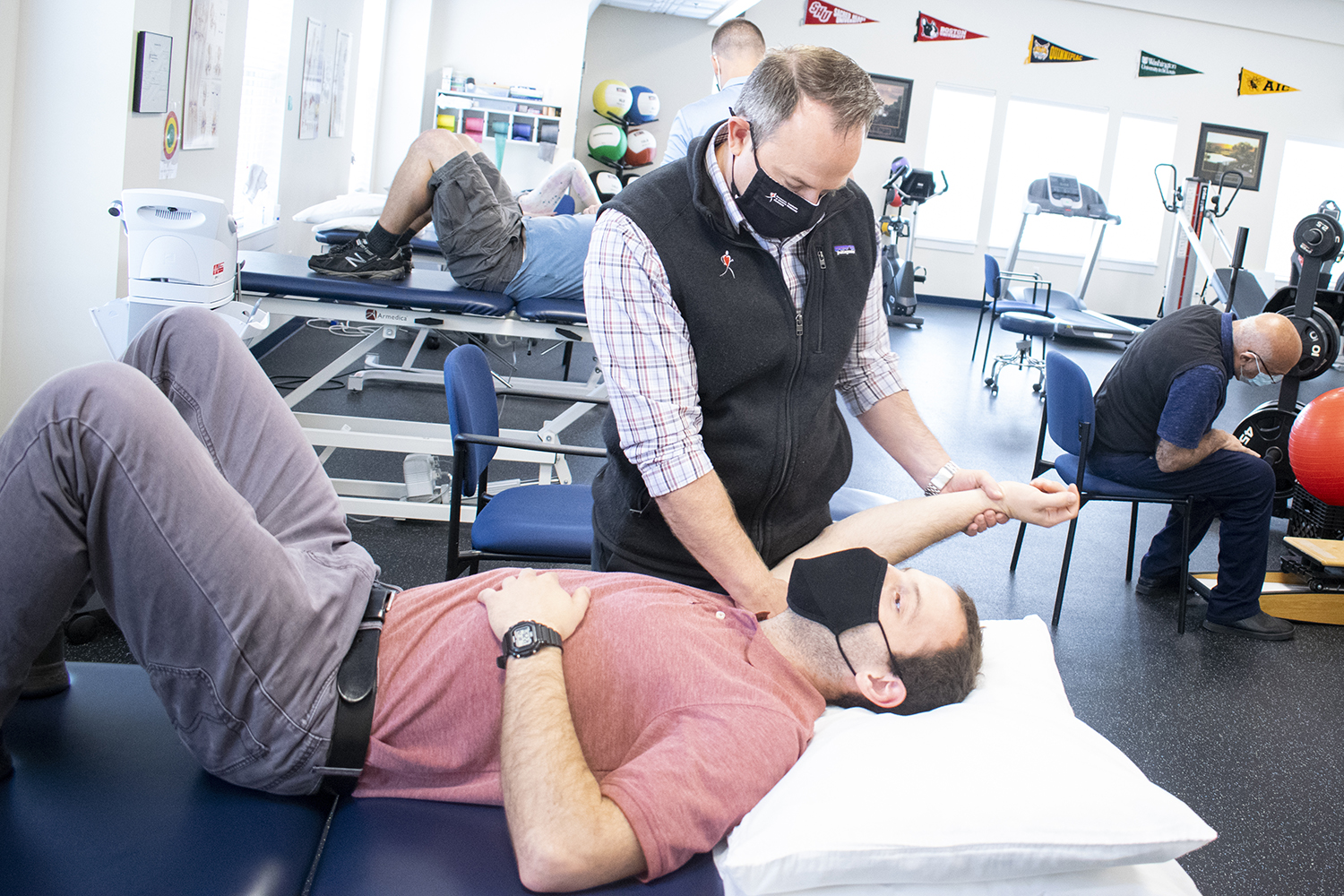Physical Therapy for Golf Performance: How TPI-Certified PTs Can Help Prevent Injury and Improve Your Golf Game
Submit your information below to download our free TPI Golf Fitness information packet.
Click here to request a consultation with a TPI expert (please designate “For TPI Golf Training” in message field) or browse below for more information about PTSMC Golf Performance Training and TPI screening.
See the full TPI Swing and Mechanics Screen in action!
While many people assume that physical therapists are only seen for post-surgery rehabilitation, PTs often help athletes and active adults avoid pain and perform better – including golfers!
You read that right. Certain Physical therapists can help improve your golf swing to both prevent pain and injury, as well as improve your game.
The Titleist Performance Institute (TPI) is the world’s leading educational organization dedicated to the study of how the human body functions in relation to the golf swing. Our TPI Certified Golf Fitness Specialists use their training to help you:
-
Decrease pain
-
Hit longer drives
-
Achieve lower scores
-
Play better rounds
How Does it Work?
Starting with an assessment…
The TPI certified therapist will take you through 16 different physical screens to assess your swing efficiency and look for any joint or muscle deficits that could cause pain or limit movement. The most efficient swing is not the same for every golfer, so the assessment considers swing mechanics and biomechanics, physical fitness, movement quality, current health, and a client history.
What happens next?

After the TPI certified physical therapist has completed their assessment, they’ll create a custom program to address each individual deficit. This program may include fitness training, targeted stretching programs, manual physical therapy treatment, coaching of swing mechanics and biomechanics, nutrition guidance and even mental strategy.
Physical therapists help golfers achieve a healthy and efficient body with proper fitness and mechanics. This not only leads to decreased pain, but improved performance with optimized swing mechanics, meaning longer drives, increased club speed, lower scores, and ultimately, a better game.
Common areas a physical therapist will help with
-
Core strength and stability for optimal swing power
-
Spine and cervical rotation for swing rotation
-
Wrist and forearm mobility for control
-
Lower body mobility for distance
-
Pelvic tilt for optimal power and control
-
Single leg balance for control
Common Golf Injuries that Physical Therapists Can Help Treat or Prevent

Golf is a repetitive sport, which can lead to overuse injuries, especially if muscles are imbalanced. There are a few areas of the body where golfers commonly experience injury.
- At the elbow, golfers might experience tendinitis, which is irritation and inflammation of the tendon tissue. This is referred to as “tennis elbow” or “golfer’s elbow.”
- Shoulder injuries are common, especially in the golfer’s lead shoulder, including rotator cuff tendinitis, AC joint sprain, and impingement syndrome.
- The golf swing involves a high amount of force on one side of the body, which places uneven pressure on the spine. This can lead to low back pain, and in more severe cases, a herniated disc.
- At the knee, golfers can develop osteoarthritis and chondromalacia, which is when the cartilage underneath the kneecap deteriorates and no longer absorbs shock at the kneecap. This is also called “runner’s knee” and is caused by poor alignment, muscle imbalances, or repeated stress to the knee.
- Ankle sprains are also common among golfers.
Quick Tips for Injury Prevention
- Strengthen your muscles the right way. No need to bulk up, but doing the right exercises can add power to your swing, while doing the wrong exercises can make you stiff and limit mobility.
- Increase your endurance. Getting tired halfway through the round is a recipe for lazy swings and higher scores. Regular walks, jogs, hikes or runs can help keep your muscles and joints prepared for a full day on the course.
- Don’t forget the warm-up. Early tee-times and rounds “after” work make creating time for warm-ups hard, but a few dynamic stretches and practice swings can prepare your body for action, meaning better play and less injuries.
Just like any other athlete, golfers can improve their game with specific exercises and stretches recommended by an expert TPI certified physical therapist. Visit www.PTSMC.com/TPI for a list of clinics offering TPI services, and remember – you can schedule an assessment with a physical therapist for golf or any other activities or issues without a doctor’s referral!
